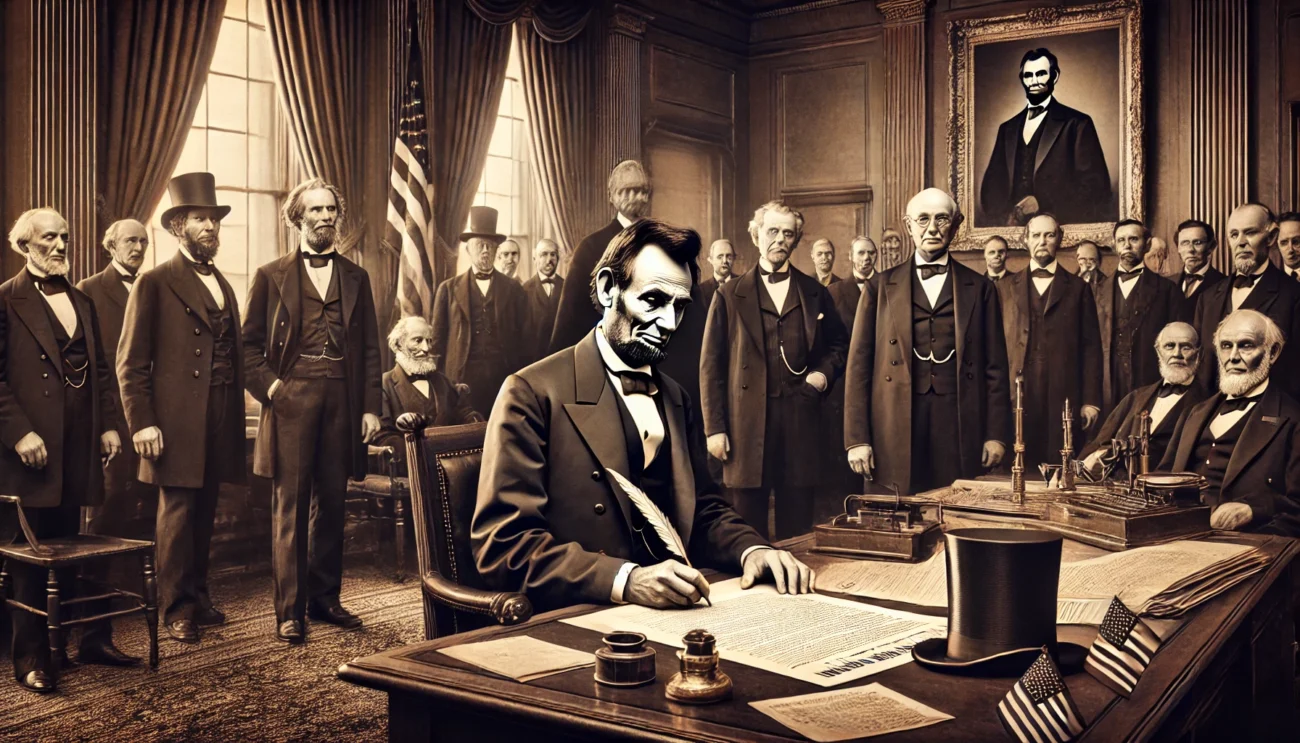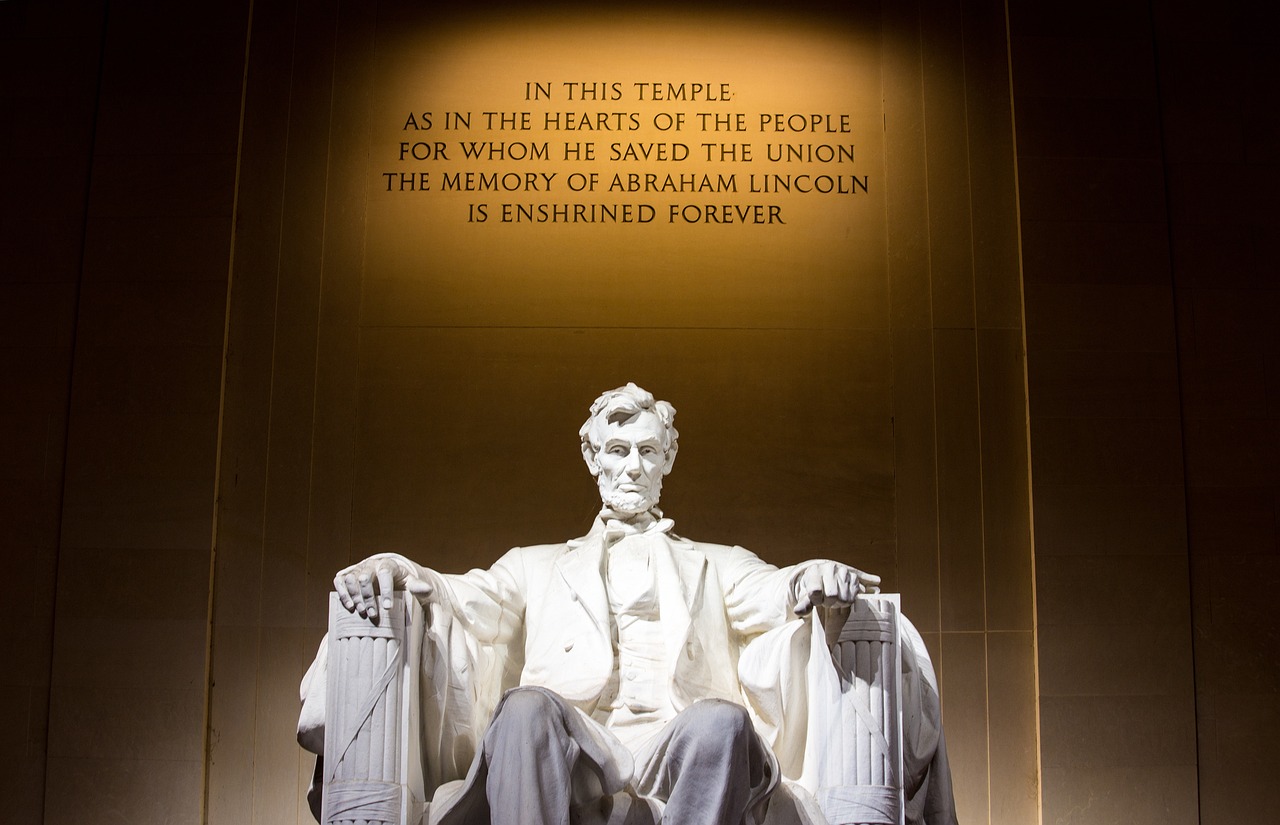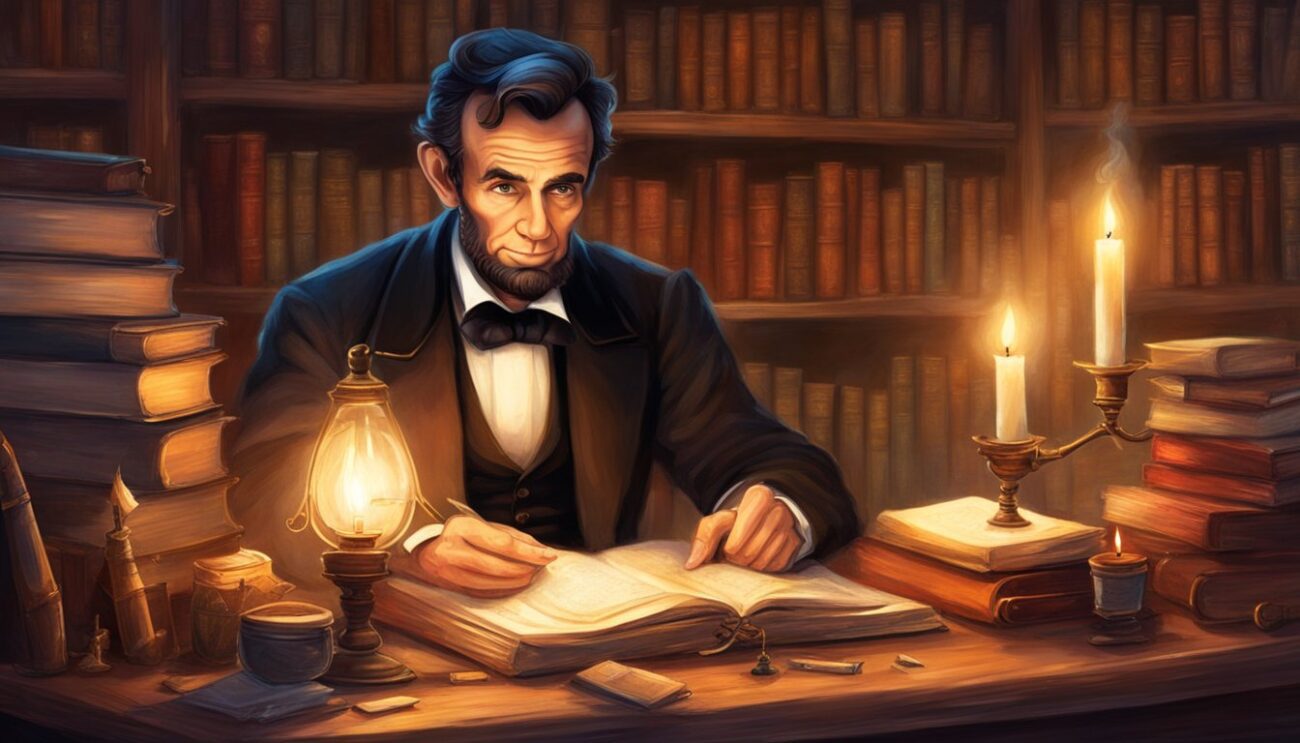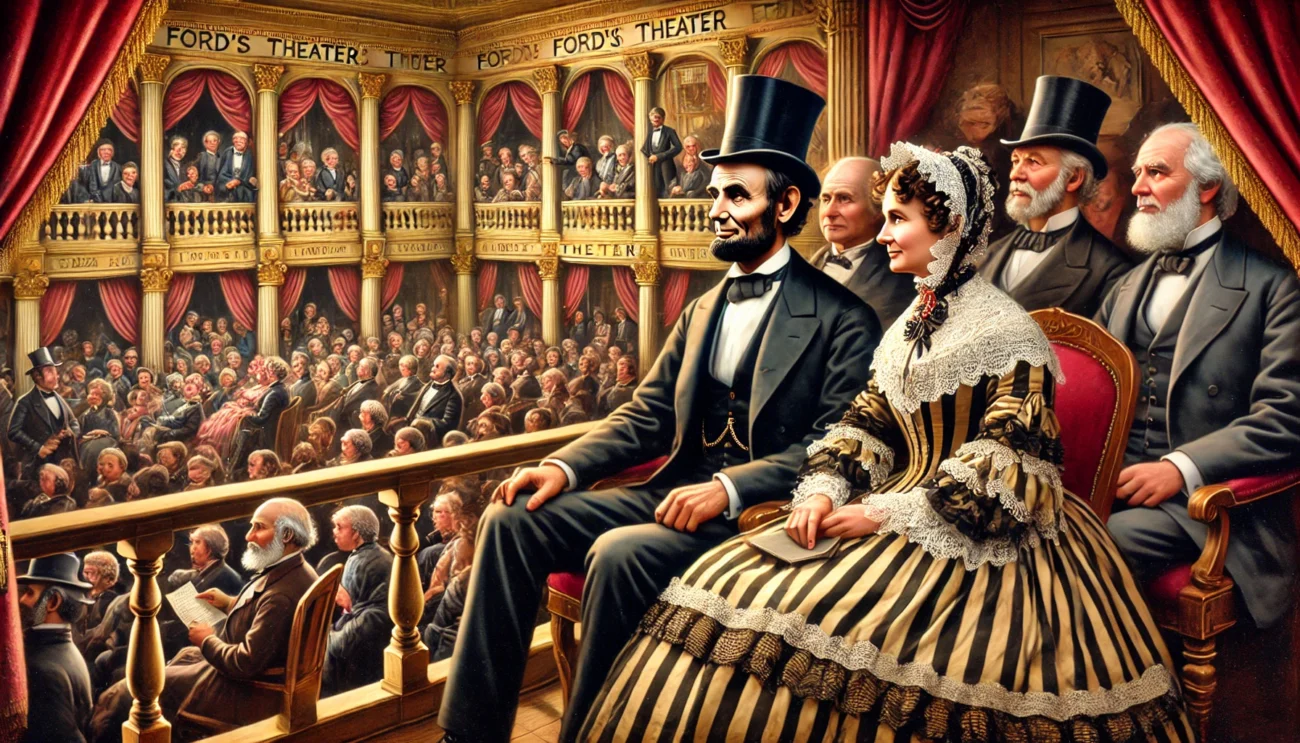Abraham Lincoln remains one of the most revered figures in American history, celebrated not only for his role in preserving the Union but also for his remarkable leadership qualities. His ability to clearly communicate his goals and vision to his countrymen was a vital part of his leadership. Lincoln’s communication skills helped unify the nation during its most divided times and ensured that his message resonated with people from all walks of life.
Another significant aspect of Lincoln’s leadership was his unwavering dedication to his principles. He was committed to the cause of emancipation and the preservation of the United States. This steadfastness earned him respect and admiration, both during his presidency and in the years that followed. His strategic thinking and resilience in the face of adversity were critical in leading the nation through the Civil War.
Furthermore, Lincoln’s humility and willingness to listen to different perspectives made him a unique leader. He surrounded himself with a diverse group of advisors, often known as his “team of rivals,” which fostered a rich exchange of ideas. This inclusive approach not only helped him make more informed decisions but also promoted a sense of unity within his administration. Lincoln’s legacy as a great leader continues to inspire and guide countless individuals striving to make a positive impact.
Early Life and Political Ascent
Abraham Lincoln’s journey from a modest upbringing to becoming a prominent political figure was marked by perseverance, hard work, and a strong commitment to learning.
Education and Early Career

Lincoln was born on February 12, 1809, in a log cabin in Hardin County, Kentucky, now part of LaRue County. He had limited formal education, attending school for less than a year. However, he was an avid reader and taught himself through reading and self-study.
His family moved to Indiana when he was seven years old, due to a land dispute. By the age of 22, Lincoln had tried his hand at various jobs, including manual labor, store clerk, and rail-splitter, which helped him understand the challenges of the common man. He also gained experience working on a flatboat for a trip to New Orleans, which exposed him to the wider world and the harsh realities of slavery.

Entering Politics
Lincoln’s political career began when he ran for the Illinois General Assembly in 1832. Though he lost his first election, he won two years later in 1834. As a member of the Whig Party, he was a strong advocate for economic modernization and infrastructure improvements.
During his time in the Illinois State Legislature, Lincoln studied law and became a successful lawyer. His legal career boosted his reputation, allowing him to build relationships and gain the trust of influential figures. In 1846, he was elected to the U.S. House of Representatives.
By the 1850s, Lincoln joined the newly formed Republican Party, which opposed the expansion of slavery. His debates with Stephen Douglas in 1858 showcased his eloquent speaking and strong moral stance, further raising his national profile and setting the stage for his eventual presidential election in 1860.
From his humble beginnings to his early political successes, Lincoln’s integrity and determination were clear, laying the groundwork for his later achievements.
Defining Leadership Qualities

Abraham Lincoln showcased characteristics that made his leadership stand out. He was known for his honesty, empathy, clear vision, purpose, courage, and perseverance.
Honesty and Integrity
Lincoln was recognized for his honesty and integrity. He was often referred to as “Honest Abe,” a nickname that reflected his reputation for being truthful and ethical. His steadfastness in the truth built unwavering trust among his peers and the general public. For Lincoln, telling the truth and maintaining moral principles were paramount. This strong moral compass guided many of his decisions during the Civil War. Trust in a leader is crucial, and Lincoln’s integrity meant people believed in his vision and were willing to follow his lead.
Empathy and Humanity
Lincoln’s empathy and humanity were evident in how he connected with people from various backgrounds. He showed remarkable compassion for soldiers, slaves, and fellow citizens. He listened to others’ concerns and understood their struggles, which influenced his policies. For instance, his empathy for the plight of slaves led to the Emancipation Proclamation. He often visited hospitals to comfort wounded soldiers, demonstrating genuine care for their well-being. Lincoln’s humane approach helped to heal a divided nation and brought people together during challenging times.
Vision and Purpose
Lincoln had a clear vision and purpose. He foresaw a united nation and worked tirelessly towards this end. His ability to communicate this vision effectively inspired many and provided direction during turbulent times. Lincoln’s goal was to preserve the Union and end slavery. His speeches and writings consistently reflected these aims, creating a sense of purpose that resonated with both leaders and the general populace. His Gettysburg Address, for instance, reiterated the values of freedom and democracy, shaping national identity and unity.
Courage and Perseverance
Courage and perseverance were central to Lincoln’s leadership. Facing enormous pressures and numerous challenges, Lincoln remained resolute. His decision to issue the Emancipation Proclamation showed immense bravery, considering the potential backlash. Despite setbacks and criticisms, he persevered, demonstrating steadfast dedication to his principles. Lincoln’s courage was not just in battle decisions but also in his willingness to stand up for what he believed was right, even when it was unpopular. His resilience in the face of adversity inspired others to stay committed to the cause of the Union.
Lincoln in the White House

Abraham Lincoln faced immense challenges during his presidency, steering the nation through the Civil War and maintaining leadership under extreme pressure.
Election and the Union’s Division
Lincoln’s election in 1860 was a pivotal moment for the United States. As the newly elected president, he had to deal with the immediate secession of Southern states. His campaign had largely focused on stopping the expansion of slavery, which was a major issue splitting the Union and Confederacy.
Upon taking office, he called for unity and patience. Despite his efforts, seven states had already left the Union by the time of his inauguration. Lincoln’s election emphasized the impossibility of compromise between opposing sides on the slavery question. His administration had to navigate the breakup of the Union while preparing for the impending conflict that would soon escalate into the Civil War.
Commander in Chief and the Civil War
As Commander in Chief, Lincoln took decisive steps to preserve the Union. He led the United States through its most severe crisis, exercising unprecedented executive power. One of his significant actions was the issuance of the Emancipation Proclamation, which redefined the war’s purpose, turning it into a battle for human freedom.
Lincoln spent countless hours in the War Room, strategizing and communicating with his generals. He appointed key military leaders who would eventually lead the Union to victory. Managing both the war front and political pressure, Lincoln maintained firm control, guiding the Union’s military efforts against the Confederacy.
His leadership during the Civil War showcased his resilience and unwavering commitment to preserving the nation, making hard decisions that ultimately led to the Union’s victory and the end of slavery in the United States.
Emancipation and Abolishing Slavery

Abraham Lincoln’s leadership during the Civil War era was instrumental in ending slavery in the United States. His efforts not only included issuing the Emancipation Proclamation but also promoting the Thirteenth Amendment to the Constitution.
Issuance of the Emancipation Proclamation
Abraham Lincoln issued the Emancipation Proclamation on January 1, 1863. This executive order declared that all enslaved people in Confederate states were to be set free. Lincoln had previously issued a preliminary version on September 22, 1862, stating that the final document would take effect at the start of the new year.
This proclamation was a strategic move during the Civil War. By freeing slaves in the Confederacy, Lincoln aimed to weaken the southern states’ ability to sustain their war effort. It also allowed African Americans to join the Union Army, bolstering its numbers and morale. The Emancipation Proclamation did not immediately free all enslaved people but was a crucial step towards justice and equality.

Promoting the Thirteenth Amendment
Understanding the limitations of the Emancipation Proclamation, Lincoln knew that a constitutional change was necessary to permanently end slavery. He promoted the Thirteenth Amendment, which would abolish slavery throughout the United States. This amendment was passed by Congress on January 31, 1865, and ratified by the states later that year.
Lincoln’s advocacy for the Thirteenth Amendment demonstrated his commitment to ending slavery legally and constitutionally. He worked tirelessly to gain support from lawmakers and the public. This constitutional change ensured that slavery would be abolished completely, making it a defining achievement of his leadership and a major step towards justice and equality in the nation.
Presidential Policies and Legislation

Abraham Lincoln left a lasting impact through his domestic policies and military strategies. His leadership during the Civil War and his vision for the nation’s future define his legacy.
Domestic Affairs
Abraham Lincoln focused on uniting the nation. The most notable action was the issuance of the Emancipation Proclamation in 1863, which declared that all slaves in Confederate states were to be set free. This policy shifted the war’s focus to include the fight for human freedom.
He also signed the Homestead Act in 1862, giving American citizens the opportunity to claim and settle land. This act encouraged westward expansion and development.
The Morrill Act, also signed in 1862, provided federal land to states to fund the establishment of colleges specializing in agriculture and the mechanical arts. These acts combined helped shape the social and economic landscape of the post-war United States.
Military Strategies and Policies
Lincoln strategically used his role as Commander-in-Chief to direct the Union Army during the Civil War. He frequently met with top generals and involved himself in military planning. The appointment of Ulysses S. Grant as General-in-Chief was pivotal, leading to more focused and aggressive military campaigns.
Lincoln’s issuance of the Emancipation Proclamation in 1863 not only aimed to abolish slavery but also weakened the Confederacy by allowing freed slaves to join the Union Army. By the end of the war, nearly 200,000 African American soldiers and sailors had served.
Moreover, the National Banking Act of 1863 was instrumental in stabilizing the Northern economy. By creating a uniform currency and a network of national banks, it ensured that the Union army received necessary financial support.
Strategic Team Building

Abraham Lincoln’s leadership was marked by his ability to build and manage a strong, diverse team. This allowed him to lead effectively through the Civil War and navigate the complex political landscape of his time.
Cabinet and Advisers
Lincoln’s cabinet was famously composed of members from different political backgrounds, a strategy detailed in Doris Kearns Goodwin’s book, Team of Rivals. By including former political opponents, Lincoln ensured a range of perspectives.
He was skilled at communication, often listening more than speaking, which allowed him to understand his advisers’ viewpoints. This ability to listen and compromise proved essential, especially when dealing with contentious issues like emancipation. Lincoln’s knack for balancing differing opinions helped prevent divisions within his administration, fostering unity crucial for the Union’s success.
He also placed significant trust in his close advisers, like Secretary of State William Seward and Secretary of War Edwin Stanton. This trust facilitated smooth decision-making and fostered a strong support network, enhancing their collective ability to lead effectively.
![]()
Military Leadership
In his military strategy, Lincoln had to overcome initial setbacks with commanders like George McClellan. McClellan’s reluctance to act often frustrated Lincoln and delayed Union Army progress. Despite these challenges, Lincoln demonstrated remarkable patience and an eventual willingness to make necessary changes in leadership to achieve success.
Lincoln eventually appointed Ulysses S. Grant as General-in-Chief of the Union Army. Grant’s aggressive tactics aligned with Lincoln’s strategic vision, leading to significant victories. Lincoln’s skill in choosing and, when necessary, replacing military leaders showcased his adaptability and commitment to the Union’s cause.
This strategic team building was pivotal in navigating the complexities of war and maintaining the strength and morale of the Union Army.
Communicating with the Nation
Abraham Lincoln was skilled at communicating his goals and vision to the public. His speeches and letters reflected his deep sense of empathy, helping to maintain morale during tough times.
He often focused on shared values and national unity. This approach helped bridge divides and rally support for the Union cause. In his second inaugural address, Lincoln spoke about healing and reconciliation, which was crucial as the Civil War neared its end.
Public Opinion and Morale
Lincoln paid close attention to public opinion, understanding its impact on morale. He used letters and public statements to address concerns and keep the nation informed. For instance, his letter to Horace Greeley clarified his stance on slavery and the Union, managing public expectations and trust.
Lincoln maintained morale by highlighting victories and progress, even when the war’s outcome seemed uncertain. He consistently reassured the public of his commitment to preserving the Union and ending slavery. His ability to communicate effectively with his countrymen was key to sustaining support and determination throughout the Civil War.
Crisis Management and Resilience

Abraham Lincoln’s leadership shined during crises and setbacks. His ability to manage the secession crisis and his resilience in facing personal and political challenges were key to his success.
Handling the Secession Crisis
In March 1861, Lincoln was inaugurated as president when the United States faced its greatest crisis: the secession of Southern states. Seven states had already seceded, and tensions were high. Lincoln’s dedication to preserving the Union was evident in his decisive actions.
He called for 75,000 volunteers to suppress the rebellion, a move that was bold and necessary. This decision showcased his willingness to take immediate and significant action in times of emergency. His response to the crisis demonstrated resilience and the ability to remain calm under pressure.
Lincoln also worked tirelessly to keep border states like Maryland, Kentucky, and Missouri in the Union. His strategic thinking and diplomacy were crucial in these efforts. By understanding the importance of these states, he helped prevent further fragmentation of the nation, showing his profound dedication to the United States.
Overcoming Personal and Political Setbacks
Lincoln’s path was marked by numerous personal and political challenges. He faced bouts of melancholy but compensated for these with an unwavering commitment to his goals. His resilience allowed him to navigate through difficult times without losing sight of his vision.
Politically, Lincoln dealt with opposition from within his own party and from rivals. His ability to foster relationships and build alliances was key to overcoming these obstacles. His skillful handling of critics and his focus on unity further exemplified his strength.
During the Civil War, Lincoln faced countless setbacks, including military defeats and criticism from the public. Despite these, his steady leadership and resilience kept the nation on course. His dedication and ability to adapt to changing situations underscored his exceptional crisis management skills.
In facing both personal and political setbacks, Lincoln’s resilience and dedication were evident, making him a remarkable leader during the nation’s most challenging times.
Diplomacy and Foreign Relations

Abraham Lincoln’s diplomatic efforts were critical in maintaining foreign neutrality and leveraging international opinions to support the Union’s cause during the Civil War. His leadership in foreign relations displayed a blend of responsibility, trust, and strategic acumen.
International Stance During Conflict
Lincoln’s foreign policy was pivotal in preventing European powers from recognizing the Confederacy. For instance, he knew that an effective blockade of the South’s 3,500 miles of coastline would hinder Confederate trade. This blockade was a crucial part of his military strategy, even though the Union had limited naval resources to enforce it.
Lincoln’s diplomatic stance was also significant in addressing European reactions to the Emancipation Proclamation. This move not only aimed to weaken the Confederacy but also sought to align international opinion with the Union by making the war a moral fight against slavery. Lincoln’s careful navigation of foreign diplomacy highlighted his strategic thinking and awareness of global perspectives on the war.
Influence of Foreign Nations
Lincoln understood the importance of foreign relations in achieving victory. British and French potential support for the Confederacy posed a considerable risk. However, by winning key battles and maintaining a strong stance on abolition, he managed to prevent these nations from intervening.
Diplomatic efforts included fostering relationships with sympathetic groups abroad, such as the London Emancipation Society. This helped improve the Union’s image and counteract negative propaganda from Confederate sympathizers. Additionally, Lincoln adhered to international law, balancing war conduct with diplomacy, enhancing trust in his leadership on the global stage. His diplomatic initiatives were crucial in preserving the Union’s global standing and preventing foreign interference.
Assassination and Historical Perspective

The assassination of Abraham Lincoln marked a tragic end to his leadership, leaving a lasting impact on the nation. Lincoln’s leadership style and actions continue to be a subject of great interest and respect.
Impact of Lincoln’s Death
Lincoln was assassinated on April 14, 1865, by John Wilkes Booth during a play at Ford’s Theatre in Washington, D.C. This event shocked the nation, coming just days after the Civil War ended. His death caused widespread grief and uncertainty about the nation’s future.
With Lincoln gone, his plans for a lenient Reconstruction faced challenges. His successor, Andrew Johnson, struggled to fill Lincoln’s shoes, leading to significant political conflicts.
The assassination highlighted Lincoln’s irreplaceable role. Comparisons to past leaders like George Washington often arise, emphasizing the high regard in which he was held. Lincoln’s assassination altered the course of American history, impacting the way future leaders, such as Theodore Roosevelt, would handle domestic policies and crises.
Reflections on Lincoln’s Leadership
Lincoln is often remembered for his strong moral compass, commitment to unity, and remarkable communication skills. His Gettysburg Address and Emancipation Proclamation are celebrated for their clarity and impact, setting him apart as a visionary leader.
His leadership during the Civil War demonstrated resilience and strategic thinking. He maintained focus on abolition and preserving the Union, earning him a place among America’s greatest presidents.
Historians frequently discuss Lincoln in the same breath as Franklin Roosevelt for their crisis leadership. Lincoln’s approach to governance, deeply rooted in empathy and justice, remains a benchmark for evaluating presidential effectiveness. The respect he garnered throughout his presidency solidifies his legacy as a leader of profound significance.
Influence on Modern Leadership

Abraham Lincoln’s leadership style, marked by humility, selflessness, and a commitment to the greater good, continues to offer valuable lessons that modern leaders can apply in various fields. This influence is seen in both historical analysis and in practical applications today.
Lessons from Lincoln’s Presidency
Lincoln’s leadership during the Civil War exemplifies the importance of resilience and integrity. He faced numerous challenges, including the secession of Southern states, and made tough decisions for the sake of unity. Lincoln’s ability to communicate effectively, often through speeches like the Gettysburg Address, showcased his skill in inspiring and mobilizing people.
His commitment to moral principles, evident in the Emancipation Proclamation, demonstrated his dedication to justice. By studying these aspects of Lincoln’s presidency, current leaders can learn to balance empathy with firmness and to lead with a vision grounded in core values.
Applications in Contemporary Leadership
Contemporary leaders can draw on Lincoln’s methods for building strong, cohesive teams. His practice of including a “team of rivals” in his cabinet ensured diverse viewpoints and robust debates. This approach can encourage innovation and adaptability in today’s organizations.
Lincoln’s focus on clear, honest communication is also crucial. In an era where transparency is highly valued, leaders must be open and persuasive, similar to how Lincoln framed critical issues for the public. Additionally, his example of servant leadership, prioritizing the needs of the nation above personal gain, serves as a model for ethical leadership in modern times.
By integrating these principles, today’s leaders can foster trust, drive meaningful change, and create lasting impacts.
Conclusion
Abraham Lincoln’s legacy as one of the greatest leaders in American history is built on a foundation of remarkable personal qualities, strategic acumen, and an unwavering commitment to principle. His leadership was characterized by a profound empathy and understanding of human nature, which allowed him to connect deeply with the American people and navigate the tumultuous landscape of the Civil War. Lincoln’s empathy enabled him to grasp the motivations, desires, and fears of those around him, fostering a sense of loyalty and unity among his supporters (source).
Lincoln’s ability to communicate effectively was another cornerstone of his leadership. His speeches and writings, marked by clarity and moral conviction, rallied the nation to the cause of preserving the Union and ending slavery. His Gettysburg Address and Second Inaugural Address are timeless examples of how powerful rhetoric can inspire and mobilize a nation by appealing to its highest ideals (source).
Moreover, Lincoln’s strategic vision and decisiveness in leadership were crucial during the Civil War. Despite his lack of formal military training, Lincoln demonstrated an uncanny ability to assess and respond to the complexities of wartime leadership. He was not afraid to make difficult decisions, such as relieving ineffective generals, to ensure the success of the Union’s military efforts (source). His pragmatic approach allowed him to navigate the delicate balance between strength and mercy, showcasing his capacity to lead with both firmness and compassion (source).
Lincoln’s leadership was also marked by a steadfast adherence to ethical principles and a commitment to justice. His moral clarity in the fight against slavery, exemplified by the Emancipation Proclamation, underscored his dedication to human rights and equality. This unwavering commitment to justice not only defined his presidency but also left an indelible mark on American history, setting a standard for future leaders to follow (source).
In summary, Abraham Lincoln’s greatness as a leader stemmed from a combination of empathy, effective communication, strategic vision, decisiveness, and moral integrity. His ability to harness these traits during one of the most challenging periods in American history solidified his place as a transformative figure. Lincoln’s leadership extended beyond mere political maneuvering; it was deeply rooted in a genuine concern for the nation’s well-being and a visionary approach to its future.
Lincoln’s empathy is perhaps one of his most defining characteristics. He possessed a remarkable ability to understand and empathize with both allies and adversaries. This emotional intelligence allowed him to build coalitions and foster a sense of shared purpose among diverse groups. His famous “Team of Rivals” cabinet, composed of former political opponents, is a testament to his inclusive leadership style. By valuing diverse perspectives and encouraging open dialogue, Lincoln was able to harness the best ideas and strategies to guide the nation through its darkest hours.
Effective communication was another pillar of Lincoln’s leadership. His eloquence and ability to articulate complex ideas in a relatable manner helped to galvanize public support and maintain morale during the Civil War. His speeches, such as the Gettysburg Address, not only conveyed his vision for the nation but also provided solace and inspiration to a war-weary populace. Lincoln’s words transcended the immediate context of the war, resonating with timeless themes of liberty, equality, and national unity.
Strategic vision and decisiveness were crucial in Lincoln’s leadership during the Civil War. Despite initial setbacks and criticism, he remained steadfast in his commitment to preserving the Union. His ability to adapt to changing circumstances and make bold decisions, such as the issuance of the Emancipation Proclamation, demonstrated his capacity to lead with both pragmatism and principle. Lincoln’s strategic acumen extended to his military leadership, where he played an active role in shaping the Union’s military strategy and selecting capable generals to execute his vision.
Moral integrity was the bedrock of Lincoln’s leadership. His unwavering commitment to justice and equality guided his actions and decisions throughout his presidency. The Emancipation Proclamation, which declared the freedom of all slaves in Confederate-held territory, was a courageous and morally driven act that redefined the purpose of the Civil War. Lincoln’s dedication to the principles of democracy and human rights left a lasting legacy that continues to inspire leaders and citizens alike.
![]()
In conclusion, Abraham Lincoln’s greatness as a leader was the result of a unique combination of empathy, effective communication, strategic vision, decisiveness, and moral integrity. His ability to navigate the complexities of a divided nation, while staying true to his principles, set a standard for leadership that remains relevant today. Lincoln’s presidency not only preserved the Union but also fundamentally transformed the United States, paving the way for a more just and equitable society. His leadership during the Civil War provided a blueprint for how to lead in times of crisis, demonstrating that true leadership requires both strength and compassion.
Lincoln’s legacy is also a testament to the power of resilience and perseverance. Despite facing immense personal and political challenges, he remained focused on his vision for the nation. His ability to endure and overcome adversity serves as an enduring example of the importance of resilience in leadership. This resilience was not just a personal trait but a reflection of his deep commitment to the American experiment and its foundational ideals.
Furthermore, Lincoln’s leadership was characterized by a profound sense of humility. He was always willing to listen, learn, and adapt, recognizing that leadership is not about infallibility but about growth and improvement. This humility allowed him to build strong relationships with his advisors and the American people, fostering a sense of trust and mutual respect.
In the broader context of American history, Lincoln’s leadership redefined the role of the presidency. He expanded the powers of the executive branch in ways that were necessary to preserve the Union and ensure the survival of the nation. His actions set important precedents for future presidents, illustrating the balance between executive authority and democratic principles.
Lincoln’s vision for America was one of unity, equality, and progress. He understood that the nation’s strength lay in its diversity and its commitment to the principles of liberty and justice for all. His leadership during the Civil War was not just about winning a conflict but about redefining the nation’s identity and purpose.
As we reflect on Abraham Lincoln’s leadership, we are reminded of the enduring importance of empathy, effective communication, strategic vision, decisiveness, moral integrity, resilience, and humility. These qualities are as essential today as they were during Lincoln’s time. His legacy continues to inspire leaders across the globe, serving as a powerful reminder that true leadership is about serving others and staying true to one’s principles, even in the face of overwhelming challenges.
In the end, Abraham Lincoln’s greatness as a leader was not just about what he achieved, but how he achieved it. His leadership was marked by a deep sense of humanity and a relentless pursuit of justice and equality. These qualities made him not only a great leader but also a great American, whose legacy will continue to guide and inspire us for generations to come.



